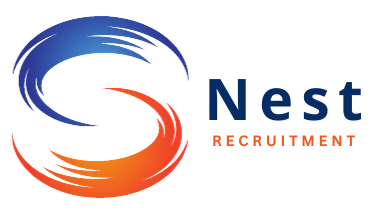Empowering AINs and PCWs: Upskilling the frontline in aged care and hospitals
The aged care and hospital workforce is under immense pressure, with rising demand for compassionate, skilled professionals who can provide quality, person-centred care. At the heart of this workforce are Assistants in Nursing (AINs) and Personal Care Workers (PCWs). They are the frontline carers, often spending the most time with patients and residents, delivering not only essential daily support but also emotional reassurance.
Despite their crucial role, the professional development of AINs and PCWs is sometimes overlooked in favour of focusing on nurses or other clinical staff. Yet investing in the upskilling of these frontline workers is one of the most effective ways to strengthen healthcare delivery, improve patient outcomes, and support a sustainable workforce.
At Nest Recruitment, we understand that AINs and PCWs are more than just support staff. They are the backbone of aged care facilities and hospital wards, and their growth and empowerment directly enhance the quality of care provided.
Why upskilling matters
The role of AINs and PCWs goes far beyond assisting with daily tasks. They monitor changes in patient conditions, provide critical emotional support, and often serve as the bridge between patients and nurses. Upskilling these workers ensures they have the confidence and capability to take on evolving responsibilities.
Some of the key reasons why upskilling is so important include:
- Meeting complex care needs: With an ageing population and higher rates of chronic conditions, frontline carers are required to manage more complex health situations. Training in areas such as dementia care, palliative care, and mobility support equips them to provide safe and responsive assistance.
- Workforce sustainability: By investing in AINs and PCWs, providers not only retain staff but also create pathways for career progression into enrolled or registered nursing. This supports long-term workforce stability.
- Improving care quality: Skilled and confident workers deliver better outcomes for residents and patients, contributing to higher standards of safety, dignity, and comfort.
Key training areas for AINs and PCWs
Targeted, practical training can make an enormous difference in how AINs and PCWs perform their roles. Some of the most impactful areas of development include:
- Dementia care: As dementia diagnoses continue to rise, it is critical that frontline staff understand how to support individuals with memory loss, behavioural challenges, and communication difficulties with compassion and patience.
- Mobility and manual handling: Safe movement is essential to prevent injuries both for staff and for residents. Ongoing training in mobility support, falls prevention, and manual handling ensures safety and confidence in care delivery.
- Palliative and end-of-life care: Providing support at life’s most sensitive stage requires specialised training. Skills in palliative care help AINs and PCWs deliver comfort, dignity, and emotional support to patients and families.
- Infection prevention and control: The pandemic highlighted the vital importance of hygiene and infection control in healthcare. Regular refreshers in this area protect both workers and patients.
- Communication and cultural awareness: As care environments become more diverse, training in effective communication and cultural sensitivity ensures respectful and inclusive care for all individuals.
Career development and progression
Another important benefit of investing in the development of AINs and PCWs is the opportunity it creates for career growth. Many frontline workers aspire to move into roles as enrolled or registered nurses. By supporting them with additional training and professional development opportunities, employers create clear pathways for advancement.
This not only strengthens staff loyalty but also helps address the broader nursing shortage across Australia. AINs and PCWs who feel valued and supported are more likely to stay within the sector and continue contributing their skills and experience.
The role of recruitment agencies in workforce development
Staffing agencies like Nest Recruitment play a vital role in connecting skilled AINs and PCWs with the facilities that need them. But the responsibility does not stop at placement. By advocating for continuous training and ensuring workers have access to upskilling opportunities, agencies contribute directly to building a more capable and resilient workforce.
At Nest Recruitment, we work with providers who value their staff and are committed to investing in their people. By supplying workers who are well-trained and supported, we help ensure aged care facilities and hospitals can meet the demands of today while preparing for the future.
A future built on empowered frontline staff
The challenges facing aged care and hospital staffing cannot be solved by recruitment alone. They require a commitment to empowering the people already working on the frontline. By prioritising the training and professional growth of AINs and PCWs, the sector can build a workforce that is confident, resilient, and ready to meet the growing needs of patients and residents.
Upskilling is not just about acquiring new skills; it is about recognising the value of AINs and PCWs, supporting their aspirations, and ensuring they have the tools to deliver the highest standard of care. Nest Recruitment is proud to stand with these essential workers and champion their ongoing development.











